 The purpose of this article is to explain how a partition action could be brought in federal court. While it is possible to bring a partition action in a federal court, because of how state-specific partition statutes are, partition matters are usually handled in state courts.
The purpose of this article is to explain how a partition action could be brought in federal court. While it is possible to bring a partition action in a federal court, because of how state-specific partition statutes are, partition matters are usually handled in state courts.
Generally, partition actions are governed by state statutes. Also, a claim for partition is usually resolved by equitable remedies, meaning the court follows equitable principles. (Elbert, Ltd. v. Federated Income Properties (1953) 120 Cal. App. 2d 194, 200.) This means protecting the rights of co-tenants or owners and determining rights in a fair way. The jurisdiction to handle a partition claim and determine equitable remedies is granted by a state constitution or by state or federal statutes.
These state statutes give state courts jurisdiction to handle partition claims alongside other real estate issues. For example, in California, the California Code of Civil Procedure section 872.110 gives state superior courts jurisdiction to handle partition matters.
 California Partition Law Blog
California Partition Law Blog


 The purpose of this article is to explain a partition sale and who must be notified of a sale. If the co-owners cannot agree about what to do with a property or whether they want to sell it, a partition action may be necessary. This means forcing the sale of the property to divide the co-owners’ interests in it and divide the value of the property accordingly. Because a home or property cannot necessarily be
The purpose of this article is to explain a partition sale and who must be notified of a sale. If the co-owners cannot agree about what to do with a property or whether they want to sell it, a partition action may be necessary. This means forcing the sale of the property to divide the co-owners’ interests in it and divide the value of the property accordingly. Because a home or property cannot necessarily be 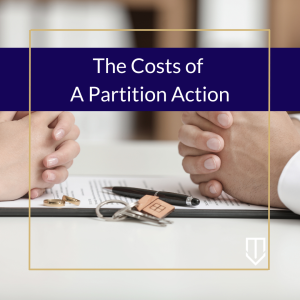 In every lawsuit, one of the biggest consideration is the cost. Frequently, clients are very eager to understand the amount that they will be required to pay to have their case resolved. After all, most people do not have a pot of money set aside for lawsuits, and are forced to eat into their savings to pay for an attorney to help with their legal problems. Even when attorneys’ fees are available for reimbursement, as they are in a partition action, the question of costs is always a significant question.
In every lawsuit, one of the biggest consideration is the cost. Frequently, clients are very eager to understand the amount that they will be required to pay to have their case resolved. After all, most people do not have a pot of money set aside for lawsuits, and are forced to eat into their savings to pay for an attorney to help with their legal problems. Even when attorneys’ fees are available for reimbursement, as they are in a partition action, the question of costs is always a significant question.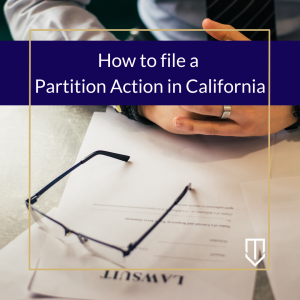 When co-owners of real estate cannot agree on how to divide or use their property, filing a
When co-owners of real estate cannot agree on how to divide or use their property, filing a 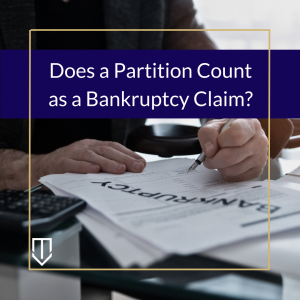 Yes, it can. Partitions and bankruptcy can interact in unusual ways despite the fact that they can often seek the same thing: the sale of a piece of property.
Yes, it can. Partitions and bankruptcy can interact in unusual ways despite the fact that they can often seek the same thing: the sale of a piece of property.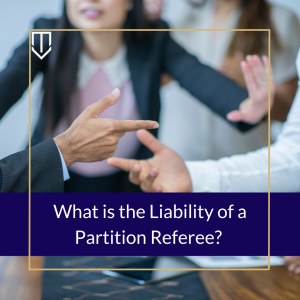 Generally, when a trial court orders an interlocutory judgment directing a partition by sale, it can appoint a referee to conduct the sale (CCP § 873.010). However, when a
Generally, when a trial court orders an interlocutory judgment directing a partition by sale, it can appoint a referee to conduct the sale (CCP § 873.010). However, when a 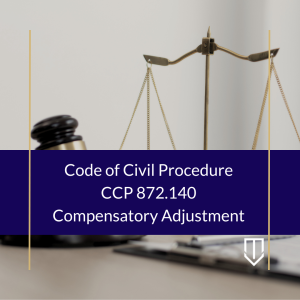 The
The 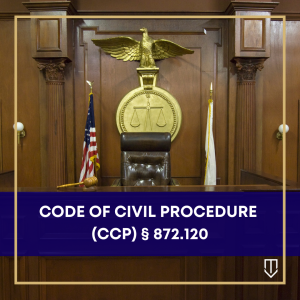 California Code of Civil Procedure section 872.130 expands the court’s authority in an effort to make the court system more efficient when ordering a
California Code of Civil Procedure section 872.130 expands the court’s authority in an effort to make the court system more efficient when ordering a 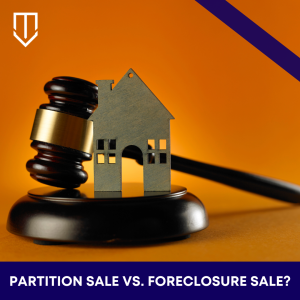 Partitions sales and foreclosure sales are two different ways that a property can be sold. The main difference between the two is the purpose behind the two sales. For partition sales, the purpose is to divide the property and for the owners to get the proceeds in proportion to their ownership. The purpose of foreclosure sales is to pay off a borrower’s loan.
Partitions sales and foreclosure sales are two different ways that a property can be sold. The main difference between the two is the purpose behind the two sales. For partition sales, the purpose is to divide the property and for the owners to get the proceeds in proportion to their ownership. The purpose of foreclosure sales is to pay off a borrower’s loan. 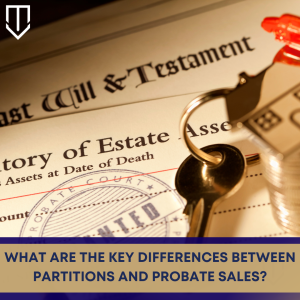 Partitions sales and probate sales are two different ways that a property can be sold. A main difference between the two is that a partition sale is ordered and overseen by the court, while a probate sale is generally overseen by a personal representative, and the court can have minimal involvement. There are also specific steps that the personal representative must take in the probate sale process under California law.
Partitions sales and probate sales are two different ways that a property can be sold. A main difference between the two is that a partition sale is ordered and overseen by the court, while a probate sale is generally overseen by a personal representative, and the court can have minimal involvement. There are also specific steps that the personal representative must take in the probate sale process under California law.